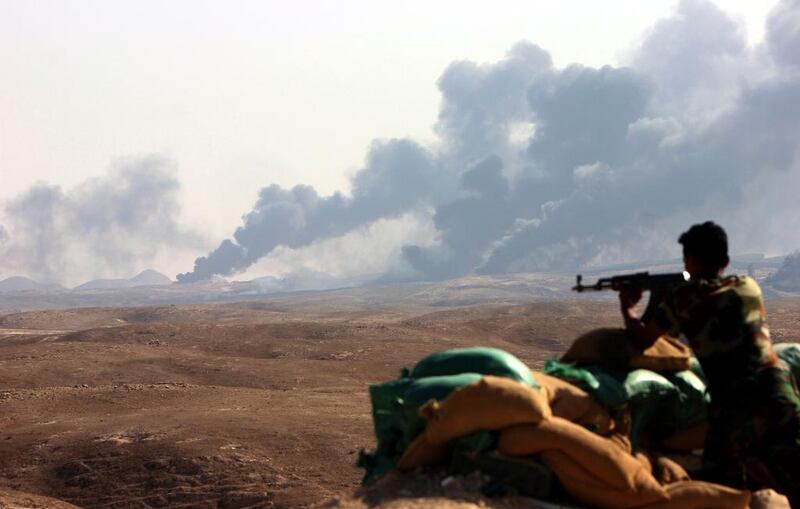The IMF expects Arabian Gulf countries to move faster on cutting spending rather than introducing taxes to help balance their budgets.
The fund projected a wider fiscal deficit of 13 per cent for the Gulf region in a report released last week because of the oil price slump, compared with 8 per cent forecast in its May report.
“Realistically, some spending cuts are likely to come before the tax starts paying off,” said Masood Ahmed, director of the IMF’s Middle East and Central Asia department. “In the conversations we have had, a number of them [Gulf countries] are looking at ways at which to consolidate. People are looking at investments. They are looking at efficiency savings in current expenditures.”
The region’s growth forecast has also been downgraded, to 3.3 per cent, because of the softer oil price. Lower government spending and the reduced oil price will leave the Gulf region with a compound annual growth rate of 3 per cent until 2020, according to the IMF.
The fund has warned that regional economies could use up their financial buffers within five years as they face a combined fiscal deficit exceeding $700 billion between 2015 and 2019.
Saudi Arabia, the world’s biggest oil exporter, is forecast to run a fiscal deficit of 20 per cent of GDP this year and will face deficits over the next five years, according to projections by the fund.
The IMF has called on Gulf states to introduce taxes, trim spending, cut subsidies and introduce reforms to help balance their fiscal budgets and deal with the low oil price environment.
Introducing taxes such as value added tax (VAT) is a politically sensitive issue, which has yet to garner consensus among the Gulf countries.
Trimming energy subsidies, which exceed $70bn this year, is another issue that has yet to gain enough traction in the region. This year, the UAE became the first country in the Gulf region to increase the price of petrol in a bid to save energy costs. The emirate of Abu Dhabi also raised the price of power and water this year.
Other modest measures have been implemented in other Gulf states. Bahrain, for example, has raised the price of gas sold to the industrial sector.
“I think there is a greater recognition of the need to make adjustments to the underlying imbalances rather than simply find ways of financing them, because I think people do recognise the new oil prices are here to stay for a while rather than as a temporary phenomena that is going to go away,” said Mr Ahmed.
Gulf countries are expected to use their financial reserves as well as borrow money to finance their fiscal deficits. The region can afford to borrow because the level of indebtedness is low, and many countries have high ratings from credit agencies.
But the IMF cautioned that the level of debt should not exceed 60 per cent of GDP.
“The important thing is to make sure that the borrowing that is done is part of an overall strategy on how to finance the budget deficit, and that any borrowing that is done is done in a way that is also advantageous for the terms and conditions of the country,” said Mr Ahmed.
dalsaadi@thenational.ae
Follow The National's Business section on Twitter





